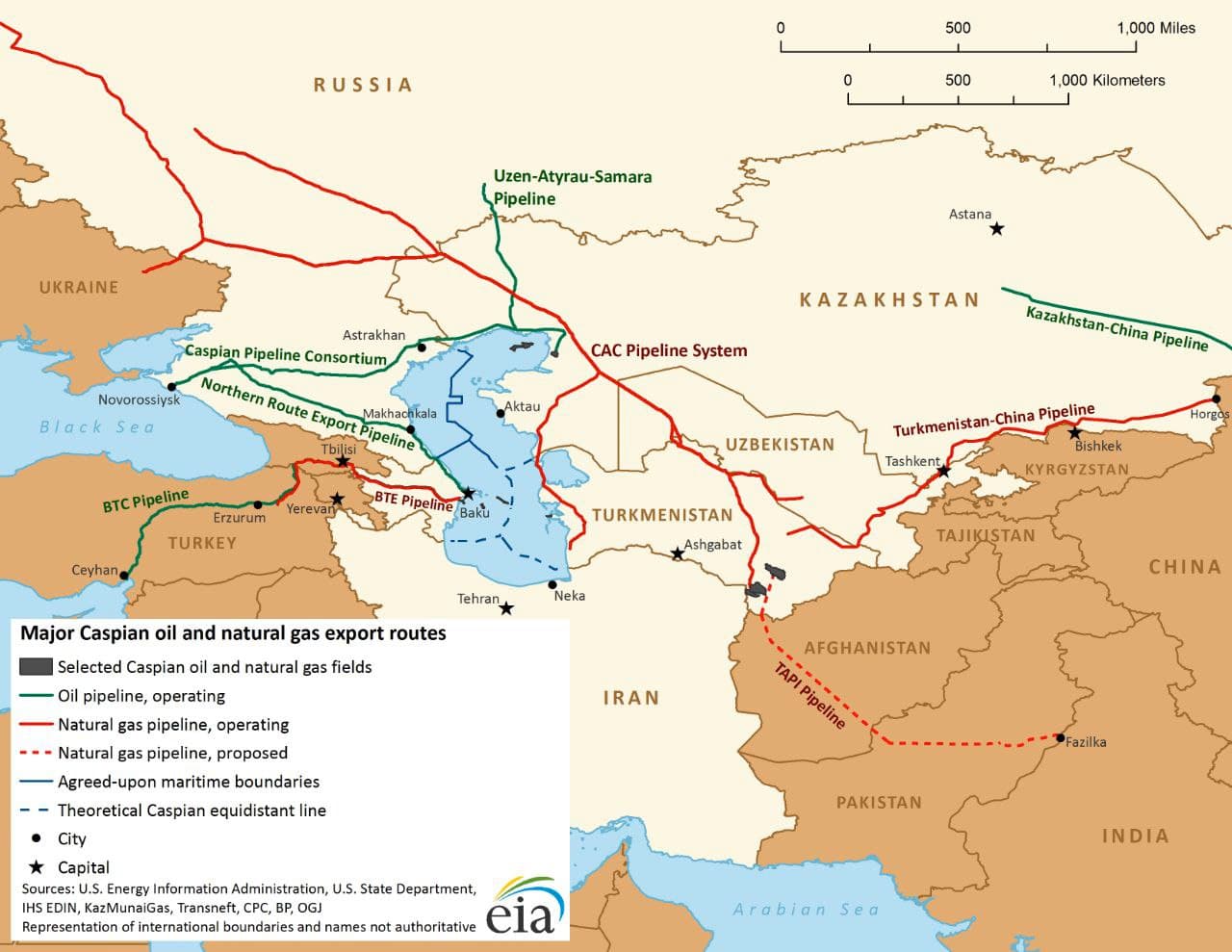Explosions Halt Central Asia-Center Gas Pipeline, Threatening Key Russian Military Supply
Explosions in Russia"s Volgograd region have led to the indefinite suspension of operations along the Central Asia-Center (CAC) gas pipeline, a critical artery for natural gas transport from Turkmenistan through Uzbekistan and Kazakhstan. This disruption, reported by a source from Ukraine’s Main Intelligence Directorate (HUR) to the Kyiv Post, raises significant concerns regarding energy supplies to essential Russian military-industrial complexes.
Background & Context
The Central Asia-Center pipeline is a vital infrastructure component for Gazprom, Russia"s state-controlled gas company. It has long served as a crucial link for transporting natural gas from Central Asia to Russia, facilitating not only energy supply but also economic ties with neighboring countries. The pipeline specifically supports key military-industrial facilities, including the Demikhov Machine-Building Plant and the MiG Production Complex, both of which are integral to Russia"s defense capabilities.
Historically, the CAC pipeline has played a significant role in the geopolitical landscape of Central Asia, bolstering Russian influence in the region while simultaneously providing energy security to Russia itself. The recent explosions come at a time of heightened military activity and tension, particularly as Russia continues its engagements in Ukraine and other areas of conflict.
Key Developments
Details surrounding the explosions remain sparse, and authorities have not yet confirmed the cause. However, the timing is particularly troubling given the current geopolitical climate, where energy resources are increasingly weaponized in conflicts. The pipeline"s halt is expected to have immediate repercussions on energy supplies to Russian military facilities, potentially impacting production schedules and operational readiness.
Experts highlight that the CAC pipeline is not merely a conduit for energy; it is a strategic asset that directly supports military operations. The loss of gas supply could hinder the production of military hardware, including fighter jets and other essential equipment. As previously reported, disruptions in energy supply chains can have cascading effects, not only for military operations but also for the broader economy.
Broader Impact
The implications of this incident extend beyond immediate military concerns. The halt in gas transport could strain Russia"s energy reserves, which have already been under pressure due to sanctions and reduced exports following the invasion of Ukraine. This situation could exacerbate internal tensions within Russia, where energy supply is closely linked to economic stability and public sentiment.
Moreover, the explosions may prompt a reevaluation of security measures surrounding critical infrastructure in Russia and neighboring countries. As the geopolitical landscape evolves, nations may be compelled to bolster defenses against sabotage and other threats that could further disrupt energy supplies. The situation mirrors recent developments in other conflict zones, such as heavy clashes in Aleppo, where infrastructure is similarly threatened amidst ongoing hostilities.
What"s Next
In the immediate aftermath of this incident, authorities will likely focus on investigating the cause of the explosions and assessing damage to the pipeline. Gazprom may also need to explore alternative routes for gas transport to mitigate supply disruptions, although such measures could take time to implement effectively.
Looking ahead, the situation underscores the fragility of energy supply chains in the context of military conflicts. As nations grapple with the realities of energy dependency and security, further developments in this situation could lead to increased military readiness or even a shift in energy policy. Observers will be closely monitoring the Russian government"s response and any potential ramifications for its military operations in Ukraine and beyond.


![[Video] Heavy clashes and gunfire reported in Baghdad, Iraq](/_next/image?url=%2Fapi%2Fimage%2Fthumbnails%2Fthumbnail-1768342239932-848qsh-thumbnail.jpg&w=3840&q=75)




![[Video] Gunfire between Iraqi security forces and Sadr militias in Baghdad](/_next/image?url=%2Fapi%2Fimage%2Fthumbnails%2Fthumbnail-1768343508874-4redb-thumbnail.jpg&w=3840&q=75)
